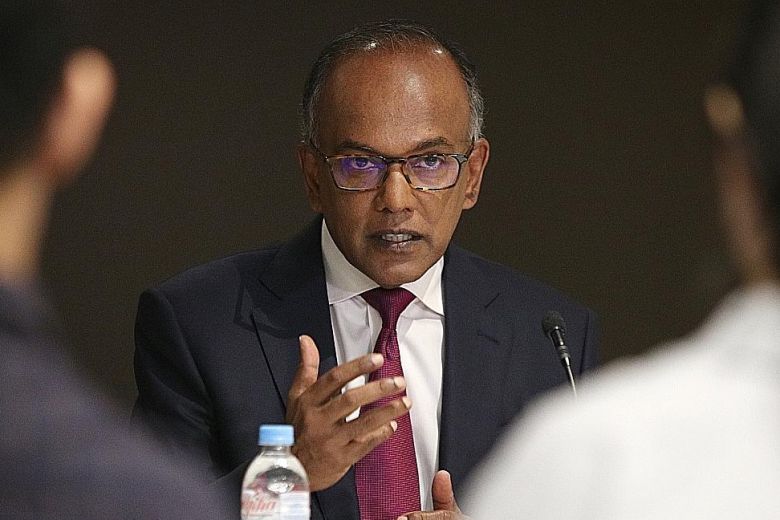54 nations to attend Singapore Convention on Mediation signing

Home Affairs and Law Minister K. Shanmugam
SINGAPORE — The United States and China are set to be among the first countries to sign a convention on mediation that is named after Singapore.
The two economic giants, which have been locked in a trade war, are among 54 countries that will attend a signing ceremony for the Singapore Convention on Mediation on Aug 7. The countries include Australia, Brunei, Japan, South Korea, Switzerland, Uganda and Vanuatu.
Around half of the countries, including the US and China, have indicated they will sign the treaty that will make it easier to enforce mediation settlements across borders.
Explaining its significance yesterday, Home Affairs and Law Minister K. Shanmugam said: “These are large economies. They have very big investments overseas, and I think they understand the significance of making sure that there are international rules-based mechanisms for dealing with disputes.”
The convention will apply only to commercial settlement agreements, and countries that sign it will have to enforce the mediation agreements in court.
Article continues after this advertisementMr Shanmugam also told reporters at a media briefing that the treaty has received “very exceptional” support so far.
Article continues after this advertisementWith the United Nations having adopted it only six months ago, it was very encouraging that “a good number” of countries have said they will sign it, he said.
“I would say it is a remarkable progress because normally, the internal process in each country takes a longer time, understandably so,” he added.
For instance, the New York Convention on the Recognition and Enforcement of Foreign Arbitral Awards attracted 10 signatories when it opened for signature in New York in 1958. Now, 160 countries have signed it.
Countries in the European Union were not on the list of nations attending the ceremony to be held at Shangri-La Hotel, and when asked about this, the minister said it was due to a process issue as the EU needed to determine if it has to sign the treaty as a whole or if its member countries can sign it individually.
For the Singapore Convention to go into force, at least three countries have to sign and ratify it.
The new treaty was adopted in December last year when the 73rd session of the UN General Assembly passed a resolution to adopt the UN Convention on International Settlement Agreements Resulting from Mediation. The assembly also decided to name it after Singapore.
Describing the move as extremely significant and historic for Singapore, Mr Shanmugam said the Republic had taken an active role in the UN in drafting the treaty and also getting consensus among the parties involved.
Others had tried before to develop a similar convention, but they did not succeed, he added.
“This time round, countries around the world felt it was right, they came together, unanimously approved a resolution in December supporting the convention, and supporting naming it after Singapore,” he said.
The convention complements the Hague Convention on Choice of Court Agreements and the New York Convention on the Recognition and Enforcement of Foreign Arbitral Awards, and fills the gap in the framework for enforcing international dispute settlements.
It will give businesses and investors more assurance and will also help international trade flows by making it easier to enforce high-value, complex, cross-border commercial dispute settlements, the minister noted.
With Singapore’s external trade being three times the country’s gross domestic product, he said “anything that supports the flow of trade, the growth of economies in this region, is extremely important”.
The Government has moved to establish Singapore as an international dispute resolution center, and has set up the Singapore International Arbitration Center and the Singapore International Commercial Court.
Mediation, which involves a neutral party working with both sides to come to an agreement, can be an alternative to arbitration or litigation, said Mr Shanmugam.
The legal industry contributed $2.3 billion to Singapore’s GDP last year, up from $1.5 billion in 2009.